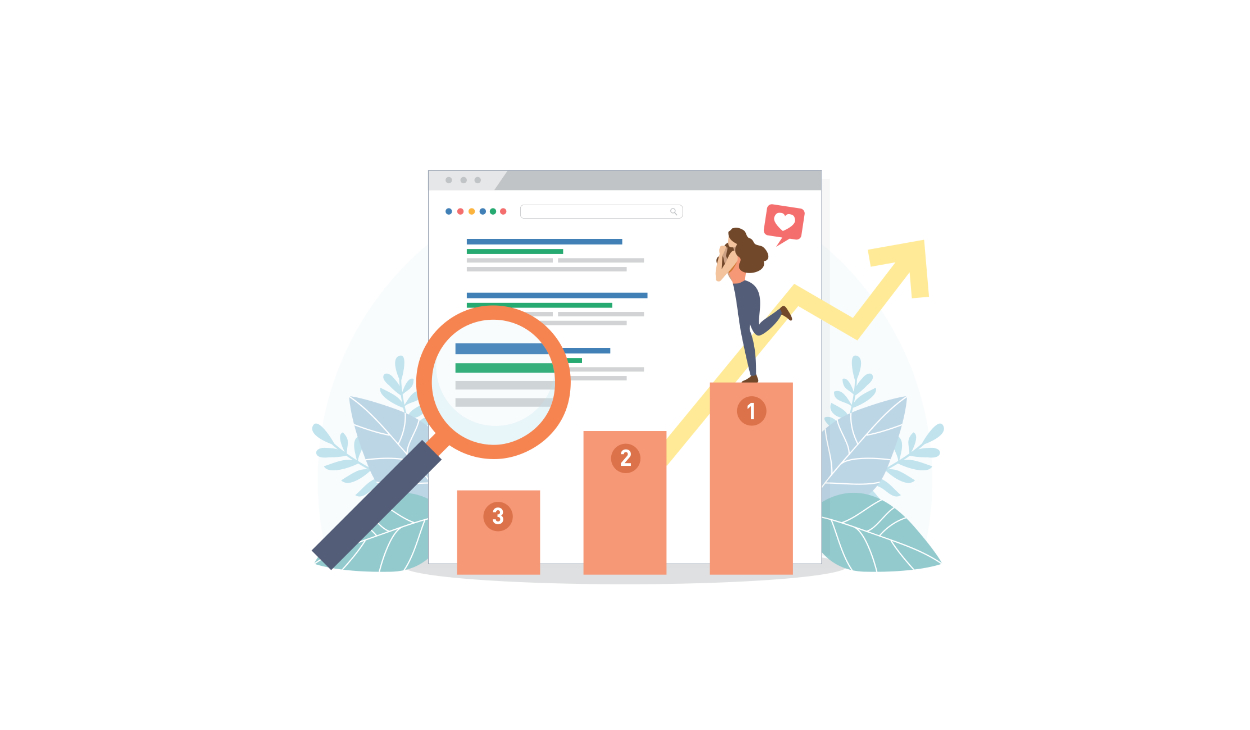 Reading Time: 4 minutes
Reading Time: 4 minutesYou’ve put a great deal of effort into crafting an SEO campaign designed to make you more visible to the audiences you most want to visit your website. Or, maybe you’re just getting started with the process of capturing the attention of users who are likely to convert into customers. Either way, it’s important to determine how successful you’ve been so far and identify potential areas for improvement.
Fortunately, Google itself provides you with a veritable mountain of data in the form of its own analytics tool, the aptly named Google Analytics. More of a toolkit than a singular tool, Google Analytics (GA) is free, robust, and insightful, offering you numerous useful metrics for analyzing your SEO campaign. However, GA has the potential to hold pitfalls for digital marketers, too.
Get a Handle on Google Analytics
When there is so much data at your fingertips, it can be difficult to determine which metrics are the most useful insights for your SEO campaign. As a result, many digital marketers are tempted to grab at only the most attractive-looking data points to avoid the need for a deeper dive into GA. However, the best GA strategies involve a look at more granular data and some very specific tactics to improve upon it. Start with our top five:
- Link Your GA and Search Console. By itself, GA provides enormous amounts of data. However, that data is much more meaningful when it’s meshed with Search Console, providing you with a full picture of the who, what, where, and when of your SEO efforts. Together, GA and Search Console can tell you who is accessing your most valuable keywords, what specific keywords are most used to locate your content, where you rank on Google, and a timeline for each specific metric as your campaign progresses.
- Use GA to Track Keywords. As mentioned above, it can be tempting to settle on your current keyword rankings to assess your SEO campaign. However, this analytic only gives you a snapshot of your performance at the moment and fails to help you determine the source of your keyword traffic and which landing pages users are driven to access.
Instead, once GA is integrated with Search Console, access Landing Pages in Google Analytics (Acquisition > Search Console > Landing Pages). The data depicts the most common landing pages people access when clicking on specific keywords, and you’ll have a much better idea regarding the top search terms people use before accessing your site.
- Use GA to Build Keyword Opportunities. If your website features an internal search engine (and it should if you operate an eCommerce page, a help center, or even a moderately sized on-page informational blog), GA can track your internal site searches. Build up a few months of data, and then access this information under Behavior > Site Search.
Consider your most common search terms. If there are a great deal of people searching for specific terms within your website, it’s likely there are others searching Google for them as well. If you don’t have a landing page that provides content to satisfy these users, you can alter your SEO and content efforts to find new keyword and content strategies.
- Use GA to Identify Easy Traffic Boosters. Great content is a driving force behind successful SEO – but not even your best performing content will stay relevant forever. Finding landing pages that have taken a steep dive in traffic can help you identify content that could benefit from republishing – boosting your traffic and conversions in the process; however, the trick is meshing traffic with conversions.
Acquisition > Search Console > Landing Pages, choosing a time frame for comparison and sorting by clicks will help you identify landing pages within your site that are no longer driving traffic to your page. If the page involved is no longer fresh (i.e., tied to a particular date or includes stale information), it could benefit from a refresh and republish.
- Use GA to Identify Valuable Pages and Boost Conversions. Of course, the main goal of your SEO efforts is to boost your conversion rates. One of the best ways to do that is to improve your organic search rankings for your most valuable pages – the landing pages that lead to the most conversions.
Use Acquisition > Search Console > Landing Pages once again, and sort by conversion rate for your desired goal (sales, sign up, or similar). Find the keywords you rank for these pages, search for them in Google, and use a free backlink checker tool to analyze their backlink profile. What could you be missing? Where are you falling short? Then, take steps to optimize your own backlink profile for your most valuable pages.
GA Can Help You Improve Your SEO – If You Use It Wisely
Google Analytics is by far the most comprehensive tool available to help you analyze your SEO campaign – however, many digital marketers don’t use it to its full potential. When you delve a little more deeply into the features GA offers and combine it with other elements like Search Console, you’ll find many more actionable insights you can use to boost your SEO. Start with the tactics listed above to begin identifying areas you could target for improvement.
Need help getting started? Turn to the experts at Vizion Interactive for an SEO audit. Our digital marketing, SEO, content, and Google Analytics team can help you identify your areas of need and build strategies for optimization. Contact us today for more information.




